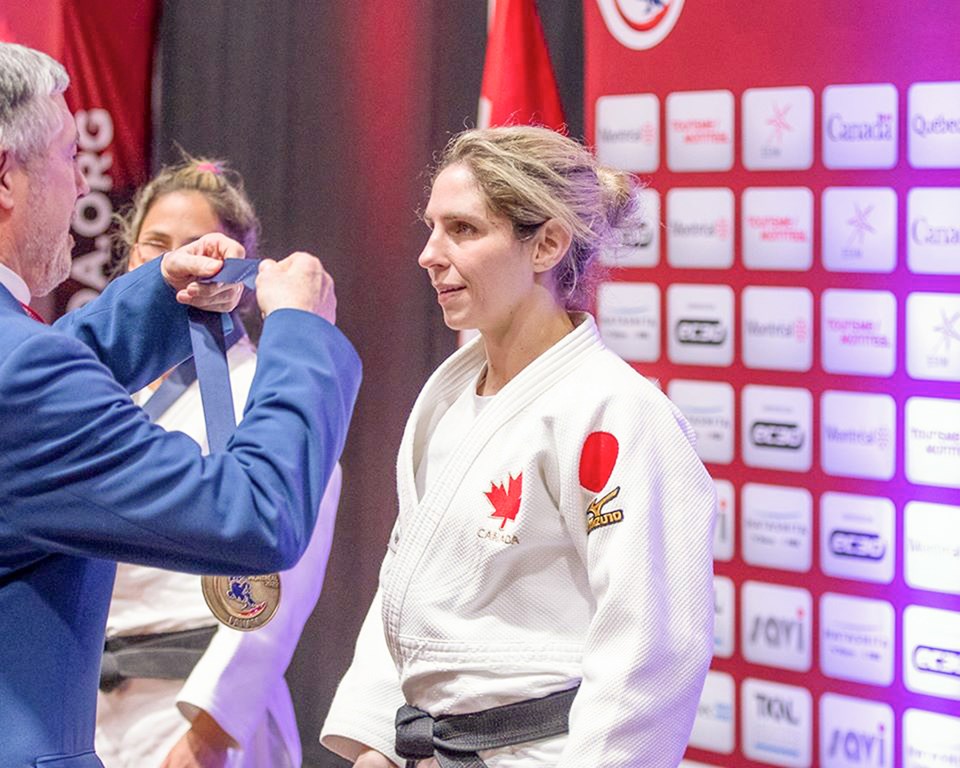Troy Shantz
Sarnia’s Priscilla Gagné has won gold for Canada at the Para Judo Pan American Championships.
The visually impaired martial artist from Sarnia topped the podium at the International Blind Sports Federation tournament in Montreal on Jan. 12.
“I felt very prepared mentally today and 90% of the fight is about mental preparation, so I feel like if that’s ready, everything is fine,” Gagné told Judo Canada.
“My coach gave me great advice and I stuck to the plan.”
Gagné, who is ranked second in the world, will represent Canada at the 2020 Paralympics in Tokyo.
Ranking is key to preferable seeding at the games, which run Aug. 25 to Sept. 6, she told The Journal last week.
Fighting in the 52-kg category, Gagné defeated Brazilian finalist Karla Cardoso in less than a minute to take the Pan Am gold.
Canadian teammate Christina Mowatt won bronze in the same category at the event, which was presented in conjunction with the Senior Elite National Championships.
The Quebec-born Gagné grew up in Sarnia from the age of three. She tried wrestling, then karate and eventually switched to judo.
Her early years were under the guidance of Sarnia sensei Bob Sing, who previously taught out of the YMCA.
She credits Sing with taking her under wing and providing one-on-one time after practice.
“He took so many falls for me,” she said, adding all he asked for in return was she do well at judo.
Last year, Gagné won silver at the IBSA games and Pan Am gold for Canada. She took a bronze at the IBSA Worlds in Portugal in 2018 and finished fifth at the 2016 Rio Paralympics.
Gagné, who now lives and trains in Montreal, was born with retinitis pigmentosa, a visual impairment that affects her central vision. In sports she’s classified as B1, the most severe level. Her eyesight consists of peripheral “slivers,” she has said.
The rules vary slightly for blind judokas. For example, opponents start with identical grips on each other – one hand on the lapel and one hand on the sleeve.
Gagné isn’t sure if her other senses are heightened but she can often anticipate an opponent’s next maneuver, she said.
“You can feel the hips rolling before it ever comes.”
